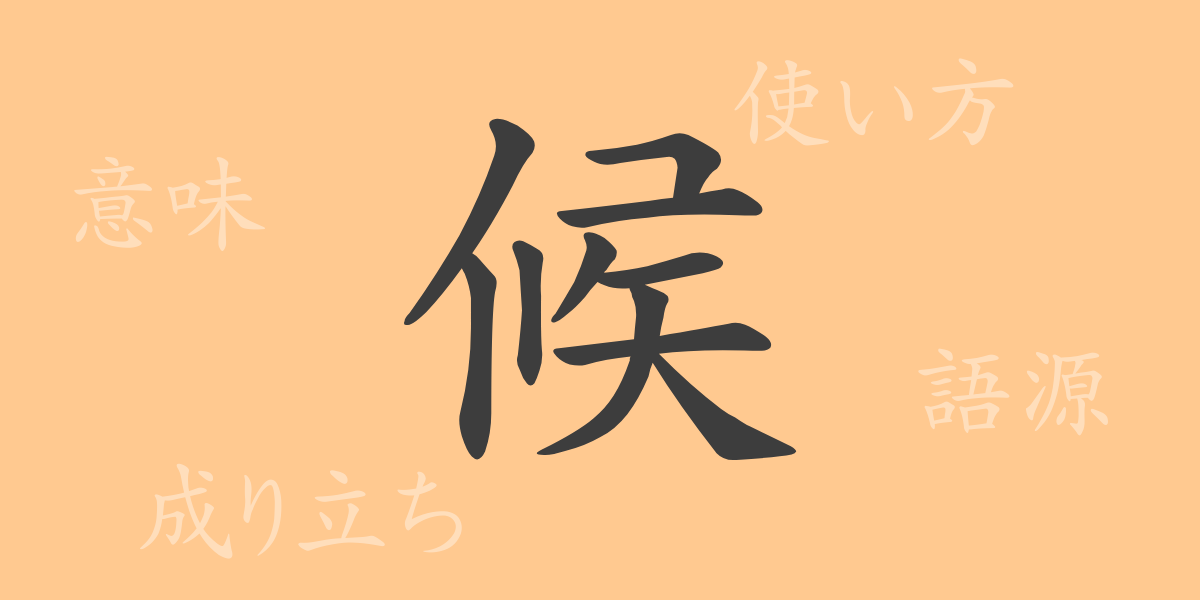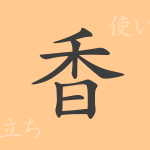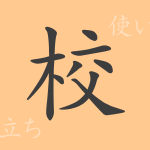The kanji “候(こう)” has a deep history and meaning embedded in Japanese culture and language. This character has been used since ancient times and is closely related to the daily lives of the Japanese people. In this article, we focus on the kanji “候(こう),” delving into its origin, modern usage, and its various expressions in idioms and proverbs. For Japanese language learners and those interested in kanji, we hope this exploration enhances your understanding of the rich expressive power and background of this character.
Origin of 候(こう)
The kanji “候(こう)” was originally used in ancient China to denote weather and seasons. This character consists of “云(くも)” representing clouds in the sky, combined with “人(ひと)” depicting a standing person. In ancient times, observing weather and climate was crucial for decision-making, leading to the use of “候(こう)” to mean “season” or “climate.” Over time, it also came to be used in social contexts, such as greetings and appointments, emphasizing its importance in communication.
Meaning and Usage of 候(こう)
In modern Japanese, “候(こう)” primarily signifies “a certain state” or “an occurrence.” It is also used as a humble expression, as seen in phrases like “お待ち申し上げる(おまちもうしあげる),” meaning “I humbly await.” Additionally, it appears in terms like “候補(こうほ),” referring to a candidate or potential choice. This character is prevalent in written language, business settings, and formal documents, making its proper usage essential.
Readings, Stroke Count, and Radical of 候(こう)
Here are the basic details about the kanji “候(こう)”:
- Readings: On-yomi (Chinese reading) is “コウ(こう),” kun-yomi (Japanese reading) is “そうろう(sourou)”
- Stroke count: 10 strokes
- Radical: イ (person radical)
Idioms, Phrases, and Proverbs Using 候(こう)
There are numerous idioms, phrases, and proverbs that include “候(こう).” Here are some examples:
- 時候(じこう) – Refers to season or weather.
- 候補(こうほ) – A candidate or potential choice.
- 気候(きこう) – Climate or long-term weather patterns of a region.
- 不如候(ふにょうこう) – A humble expression to self-deprecate.
- 申し候(もうしそうろう) – A polite way of offering something.
These idioms and phrases play significant roles in Japanese language, showcasing the versatility and expressive richness of “候(こう).”
Conclusion on 候(こう)
The kanji “候(こう)” is a crucial element in Japanese, from its origin to its diverse modern uses. Understanding and correctly using this character leads to a deeper comprehension of the Japanese language. The idioms and proverbs that include “候(こう)” enrich the nuances of the language, making communication more refined and culturally resonant. We hope this article helps deepen your understanding of the kanji “候(こう).”

























